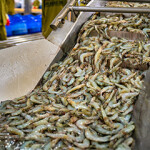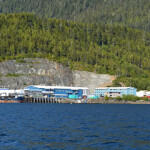RODA gives 60-day notice on possible suit regarding Vineyard Wind project

A consortium of commercial fishing industry stakeholders announced on Tuesday, 19 October, it intends to file a lawsuit against federal officials over their approval of the Vineyard Wind 1 offshore energy development project if the U.S. government fails to address violations the stakeholders allege were made in its approval process.
The law firm representing the Responsible Offshore Development Alliance (RODA) sent a 27-page letter Tuesday to six federal officials, as well as the CEO of Vineyard Wind, and attorneys general in three states, saying the group will file a lawsuit if federal officials do not make changes to the project that brings it into compliance with the Outer Continental Shelf Lands Act, the Clean Water Act, the Endangered Species Act, and other federal laws.
“Should the statutory and regulatory violations not be remedied within the next 60 days, RODA and its members state they will file suit under the citizens’ suit provisions of these statutes to require the Bureau of Ocean Energy Management, Army Corps of Engineers, and other agencies to comply with their legal obligations,” the organization said in a statement.
The letter comes a month after RODA submitted a petition for the U.S. First Circuit Court of Appeals to review the matter. The group made the filing to determine which federal court would be the appropriate venue for any legal proceedings. The appellate court has yet to make a ruling in that matter.
RODA’s new letter addresses several issues of concern regarding the 800-megawatt project that’s set to be developed in a 75,000-acre area off the coast of the U.S. state of Massachusetts. Among the issues includes the development may lead to increased collisions with marine mammals, including the endangered North Atlantic right whale, and the development may lead to higher water temperatures in fishing areas.
The group also has concerns about the placement of turbines that may make bottom-trawlers and other fishing vessels unable to pass through the area.
“If commercial fisheries experience decreased catch due to the inability to operate in the area or being unsuccessful in finding alternative locations that provide comparable catch and fishing revenue, seafood processors and distributors will see lower volumes and/or quality of product,” the letter states.
The letter also said the amount of funding set aside for fishermen impacted by the project will not cover everyone, and it does not address the potential for increased costs, such as higher insurance premiums fishermen who travel in the area will face.
There also are concerns about how eligibility would be determined.
Since the federal government’s decision to approve the wind energy project in May, fishing industry representatives have been critical of how government agencies, in particular the Bureau of Ocean Energy Management (BOEM), have communicated with and address concerns raised by fishermen and other stakeholders.
In August, BOEM sent RODA a letter saying that it would work on improving communication between the two sides.
Photo courtesy of T.W. van Urk/Shutterstock






Share